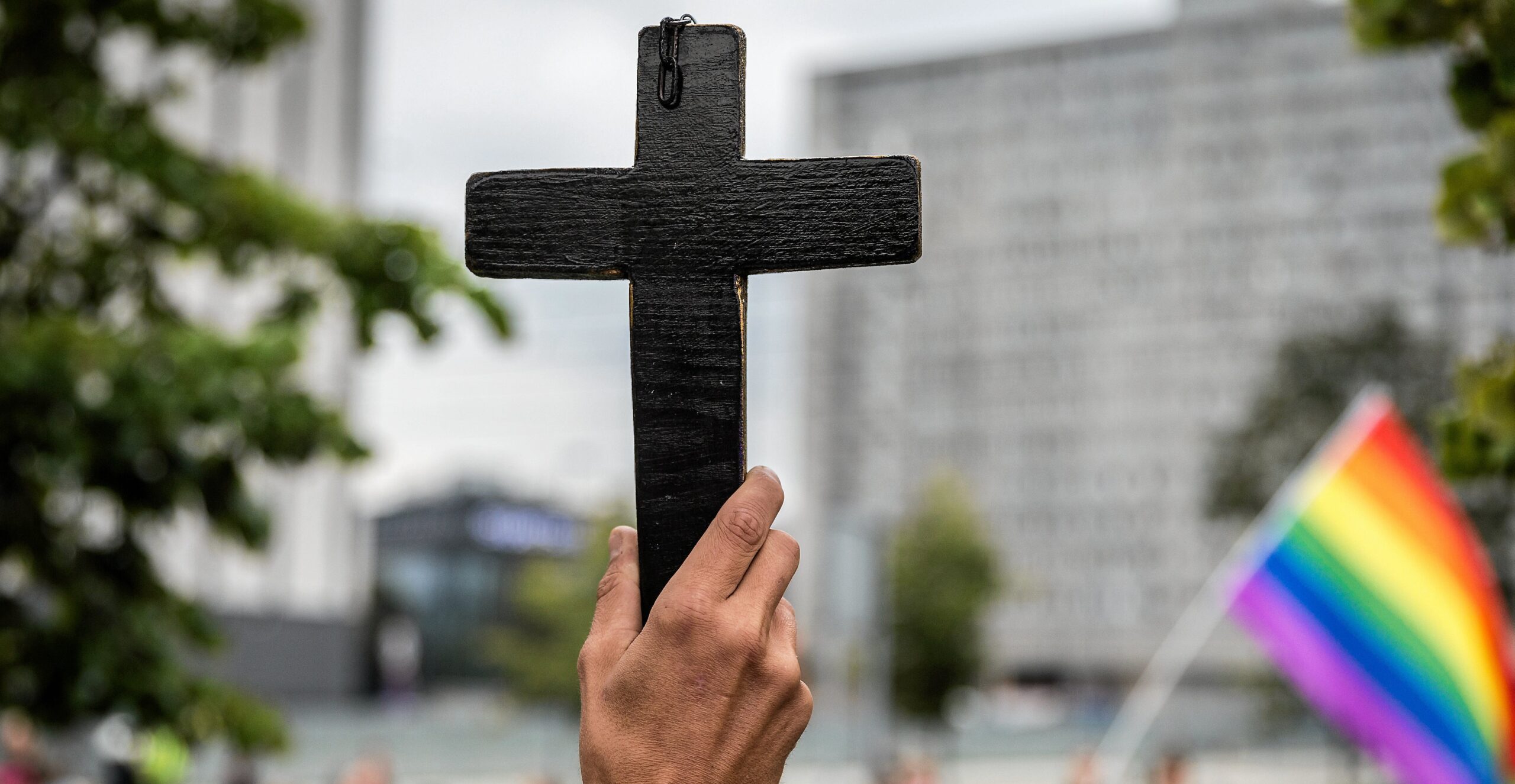A backlash against the backlash: Poland’s failed conservative revolution

By Stanley Bill
A leading theory on the success of right-wing populism posits a “cultural backlash” against progressive social change. Older voters and those outside metropolitan centres supposedly feel threatened by shifting values and mass migration, creating fertile ground for political forces promising to preserve traditional social structures.
Poland offers an interesting case study for this theory, as the conservative Law and Justice (PiS) party took and held power for eight years partly on a platform of policies to prevent migration from outside Europe and to protect a system of values tied to Roman Catholicism.
Yet PiS’s institutionalisation of a right-wing “cultural backlash” has been paradoxically accompanied by wider liberalisation of Polish society. The party’s recent loss of its parliamentary majority – and expected departure from government – may even have resulted in part from a “reverse backlash” against its conservative counter-revolution.
PiS’s left-right combination
PiS is an unusual party in the context of Western democracy. It defies the traditional left/right political divide to embody the most radical disjuncture of almost any party in Europe between economic and cultural policy positions: significantly to the left in its redistributionist economic policies, but far to the right on cultural politics. This combination fits the views of a sizeable portion of the Polish electorate.
PiS’s success has transformed Poland’s whole political scene in economic policy, where the popularity of the party’s redistributionist programmes has forced even economically liberal opponents – like Civic Coalition (KO), the largest opposition group – to move towards the left on such issues.
Poland’s main opposition has proposed doubling the tax-free income threshold. It also wants an immediate rise in child benefits.
An economist has warned that the government and opposition’s efforts to outbid one another risk overstretching the budget https://t.co/3UcYm6io5d
— Notes from Poland 🇵🇱 (@notesfrompoland) May 18, 2023
PiS’s election triumphs in 2015 and 2019 were in part due to its mostly kept spending promises, which genuinely transformed the lives of many Poles, reducing poverty and giving a sense of dignity to those in previously neglected small towns and villages. The opposition coalition could only win in 2023 by promising to retain these gains.
Yet in the burning questions of Poland’s culture wars – migration, the role of the Catholic church, LGBT+ rights and abortion, among others – PiS has had a more mixed effect. In multiple issues, its conservative rhetoric and policies may have triggered a liberalising trend, both in Polish society and in the policy platforms of its rivals.
The abortion pendulum
In October 2020, PiS tightened Poland’s already restrictive abortion law through a ruling of its captured Constitutional Tribunal. The ruling unleashed a wave of “Women’s Strike” protests that brought hundreds of thousands of people out onto the streets across the country in the middle of Poland’s first major COVID wave.
With pandemic deaths peaking and farmers blocking roads to protest an unpopular animal rights bill at the same time, the country was seized by a fervid atmosphere of public disorder. For the first time, PiS seemed to have lost control.
October 2020 probably remains the key moment in PiS’s eventual fall from power. With multiple factors at play, the party slipped in polling from support of around 44% down to 34%, a decline from which it never recovered. In last month’s election, it won 35% of the vote, down from 44% in 2019.
The virtual ban on abortion unleashed a pendulum swing in public opinion on the issue. Though polling is mixed on the scale of the change, even conservative measures show an increase in the proportion of Poles favouring liberalisation and a clear majority in favour of restoring the old “compromise” of the 1993 abortion law.
One member of Poland’s likely new ruling coalition, The Left, says polls show a majority in favour of abortion on demand.
In fact, they do not. And this issue is likely to be one of the hardest for the incoming government to resolve, writes @danieltilles1 https://t.co/4Nze9wwEC3
— Notes from Poland 🇵🇱 (@notesfrompoland) November 20, 2023
The liberalising dynamic has been even stronger among opposition voters, prompting Donald Tusk’s KO, previously cautious on this issue, to include abortion up to the twelfth week of pregnancy in its policy programme. As Tusk explained, the abortion “compromise” had been shattered by PiS, thus opening the path to liberalisation as a realistic political platform.
In the 2023 election, with its massive turnout, the abortion issue seems to have directly mobilised voters against PiS. According to one exit poll, abortion and women’s rights constituted the second most important issue for voters, equal with state security and behind only the economic situation.
In the aftermath of the election, multiple key PiS figures, including Prime Minister Mateusz Morawiecki, characterised the abortion decision as a fatal mistake. The prime minister revealed that sections of the ruling camp, presumably including himself, had warned against it at the time, predicting that it would cause “a strong swing to the left”.
Poland’s prime minister has admitted it was a “mistake” for the ruling party to push for the constitutional court to introduce a near-total abortion ban in 2020.
He claims “he has always been a supporter” of the abortion law that existed before the ruling https://t.co/QObza3Raxk
— Notes from Poland 🇵🇱 (@notesfrompoland) November 6, 2023
PiS leader Jarosław Kaczyński had been wary of the issue over many years, rejecting or delaying action for fear of a negative response from voters, who consistently favoured the existing “compromise.” In the end, key supporters in the church and a conservative faction of PiS’s own MPs seem to have pushed Kaczyński into a move he did not really want to make.
PiS has paid a heavy price. The party’s overreach on abortion led to a reverse backlash that has shifted public opinion, put liberalisation of the law seriously on the political agenda, and perhaps led to the party’s fall from power.
Concrete change may still be a long way off, however, as Poland’s future coalition government remains divided between the full liberalising demands of KO and The Left (Lewica) and the more conservative approach of the centre-right Third Way (Trzecia Droga).
The initial agreement between the coalition partners refers only to a vaguely framed “invalidation” of the constitutional court’s 2020 ruling, suggesting a return to the earlier abortion “compromise” as the lowest common denominator of their different positions.
The opposition groups likely to form the next government have signed a coalition agreement
They pledged to:
– restore rule of law
– annul the near-total abortion ban
– depoliticise public media
– prosecute anti-LGBT hate speech
– separate church and state https://t.co/lwQvGGok8s
— Notes from Poland 🇵🇱 (@notesfrompoland) November 10, 2023
Even if the coalition reaches agreement on a plausible course of action towards further liberalisation, they will face continued resistance from the PiS-dominated constitutional court as well as the veto powers of President Duda.
The end of “LGBT ideology”
In three consecutive election campaigns in 2019-20, PiS evoked the threat of what it called “LGBT ideology” as the main scare tactic to mobilise its conservative base. The party, public media, and allies in the church relentlessly attacked the LGBT+ rights movement as a dangerous foreign import and “totalitarian” threat to the Polish nation.
PiS-backed president Andrzej Duda won re-election referring to an “ideology of evil” aiming to “sexualise” children, while PiS-controlled local authorities across the country proclaimed symbolic resolutions declaring their regions “free from LGBT ideology.”
PiS’s rhetoric appealed directly to religious conservatives, but also seemed initially to cause a wider swing to the right in Polish society. A previously liberalising trend in public opinion on LGBT+ rights slowed or even reversed in 2019.
LGBT „ideology weakens the west” and „terrorises people”, says Jarosław Kaczyński. But „we will defend ourselves fiercely”
The ruling party leader also revealed further plans to „reform the judiciary”, which is Poland’s „sacred right” as a sovereign state https://t.co/8XfYetoPkY
— Notes from Poland 🇵🇱 (@notesfrompoland) April 2, 2021
Yet these effects would be short-lived, and the liberalising trajectory soon reestablished itself after 2020. In various polls, acceptance of LGBT+ people surged up, with even support for same-sex marriage reaching a new record high of 34%.
One pollster suggested this shift may have been perversely connected to the very omnipresence of PiS’s anti-LGBT rhetoric. The more voters heard about the issue, the more familiar it became and the less threatening LGBT+ people appeared to be.
Some voters may also have been put off by the often dehumanising nature of PiS’s rhetoric, thus becoming more sympathetic to its targets. Poland has remained conservative by European standards, but the political combustibility of the LGBT issue has dissipated.
A growing majority of Poles favour the legalisation of same-sex civil unions or marriage, with almost two thirds now in favour, a new poll has found https://t.co/ivS7MswKWi
— Notes from Poland 🇵🇱 (@notesfrompoland) June 10, 2022
Tellingly, by the 2023 election campaign, “LGBT ideology” had all but vanished from PiS’s agenda. At the height of its anti-LGBT propaganda in 2019, negative reports appeared in 30 out of 35 main evening news bulletins on public television; in 2023, the issue was almost entirely absent, replaced by incessant representations of dangerous migrants.
At the same time, multiple PiS-controlled local authorities have withdrawn or revised their “anti-LGBT” resolutions under the financial pressure of blocked EU funds.
In short, PiS seems to have admitted defeat on the LGBT issue for now – or at least accepted that it no longer has the same mobilizing effect among its base and that aggressive, exclusionary rhetoric may deter potential voters in the centre.
A local authority that was the first of many in Poland to adopt a resolution declaring itself “free from LGBT ideology” has now voted to withdraw the measure.
It did so under the threat of losing millions in EU funding over the issue https://t.co/kNP4jaSlhm
— Notes from Poland 🇵🇱 (@notesfrompoland) November 2, 2023
The issue might still return in some form, perhaps with a new emphasis on transgender identity – Kaczyński briefly floated this idea in 2022 before backing away. But it seems doomed to bring ever-diminishing political returns.
The paradox of migration
Migration is one issue in which PiS’s stance has successfully pushed social attitudes and other parties to the right. Since the PiS government first opposed the EU refugee relocation scheme during the migration crisis of 2015-16, public opinion has hardened significantly against migrants from the Middle East and Africa.
By 2018, 75% of Poles were opposed to accepting refugees from these regions, up from 53% early in 2015.
Terrorist attacks in Western Europe probably contributed to this shift, which echoed growing fears about migration in societies across the continent. But it was also reinforced by a stream of negative, sensationalist propaganda against migrants from PiS politicians and public television, including during the 2023 election campaign.
A court has ordered Polish state TV to apologise for „xenophobic and racist material” it broadcast about immigrants.
The station must also make a 50,000 złoty donation to an immigrant support centre https://t.co/OKL9M9LGIX
— Notes from Poland 🇵🇱 (@notesfrompoland) February 17, 2021
Yet even in this issue, where PiS’s security narrative dominates public debate, some striking contradictions point to a very different process of underlying transformation.
Poles won wide admiration for their massive support of millions of Ukrainian refugees after Russia’s full-scale invasion in 2022. But Poland has also seen the arrival of unprecedented numbers of economic migrants under the PiS government, with the country topping the list for residence permits issued to immigrants from outside the EU every year since 2017.
The opposition has even used this issue to attack PiS, pointing in equally alarmist, and probably misleading, terms to growing numbers of visas issued to migrants from majority Muslim countries.
These opposition attacks, with their familiar anti-Muslim tone, precisely demonstrate the success of PiS’s securitization of the migration issue and the decisive turn to the right in public opinion.
Opposition leader @donaldtusk has called for Poland to „regain control of its borders” amid an influx of Muslim migrants
His remarks were criticised by the government but also opposition figures, who accused him of a „bidding war” on anti-migrant rhetoric https://t.co/67wZMcqJPQ
— Notes from Poland 🇵🇱 (@notesfrompoland) July 3, 2023
But beneath these controversies, Poland is becoming a destination country for economic migrants desperately needed by its own labour market and pension system.
With a low birthrate and shrinking population, the state social insurer (ZUS) has estimated that merely to preserve current pension benefits, Poland will need to host 2.8 million foreign workers by 2032 – 13% of the working population.
Poland is fast becoming a more diverse country than at any time since the Second World War. The country’s future development may depend on still more arrivals from abroad.
Poland needs two million new foreign workers over the next decade to counteract the ageing of its population, says the state social insurance agency.
It notes that recent years have seen mass immigration, with over a million foreign workers now registered https://t.co/LW5278uawm
— Notes from Poland 🇵🇱 (@notesfrompoland) July 12, 2023
A failed counter-revolution
PiS has genuinely transformed Poland by shifting its political centre of gravity to the left on redistributionist social welfare and “national” economics. But its right-wing counter-revolution of values has largely failed, and in some respects even contributed to its fall from power.
This Polish example potentially has wider relevance for democratic politics, showing that when a “cultural backlash” against progressive change is aggressively institutionalised, it may provoke an answering “reverse backlash” accelerating the very change it seeks to block.
In the Polish case, this change is also closely connected to a decline in religious belief and practice, especially among younger people. This shift may be related to scandals in the church and to the politicisation of religion under PiS, but it also springs from deeper structural factors, including the growing prosperity and mobility of Polish society.
Poland remains a conservative country in comparison with many others in Europe. But underlying processes of liberalisation have continued to gather pace, and most Poles turn out to be sceptical of conservative counter-revolution in its radically politicised form.
Notes from Poland is run by a small editorial team and published by an independent, non-profit foundation that is funded through donations from our readers. We cannot do what we do without your support.
Main image credit: Grzegorz Celejewski / Agencja Wyborcza.pl

Stanley Bill is the founder and editor-at-large of Notes from Poland. He is also Professor of Polish Studies and Director of the Polish Studies Programme at the University of Cambridge. He has spent more than ten years living in Poland, mostly based in Kraków and Bielsko-Biała.
He is the Chair of the Board of the Notes from Poland Foundation.






